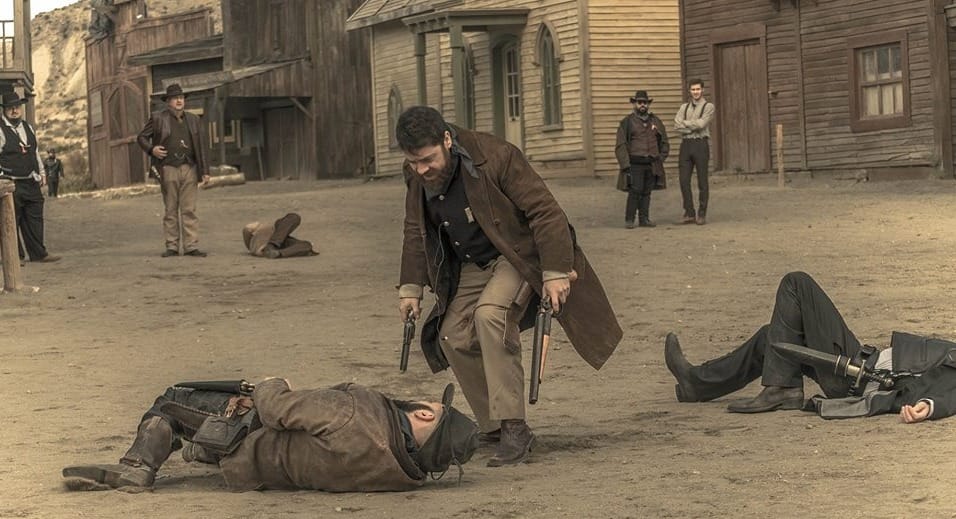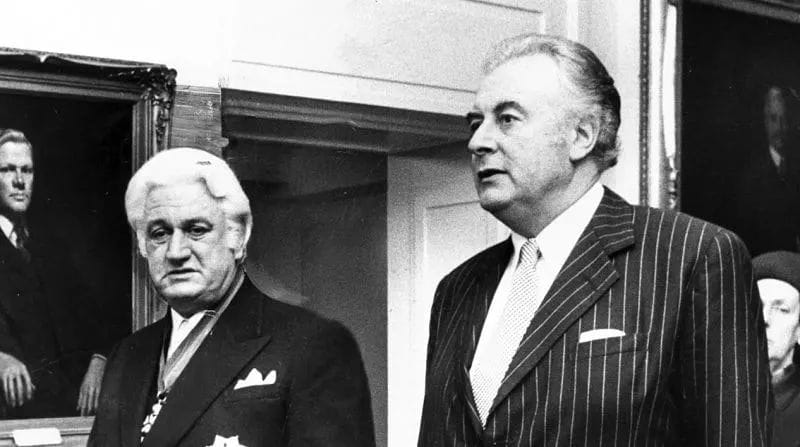
You wander the desert roads of Mayfield, gun in your hand.
The wind is blowing and carries the sound of a distant gunshot. White Hat or Black Hat? Good guy or bad guy? Where does your conscience take you?
You’re not watching an episode of HBO’s Westworld – you’re living it through a LARP, a live-action role-play game. LARPs are an increasingly popular form of entertainment that allow players, LARPers, to escape reality.
LARPers are immersed, often for days at a time, in a particular period of history or a fantasy world, often inspired by hugely popular shows such as Westworld or Game of Thrones.
Some LARPS are extravagant; Bunker 101 is set in the post-nuclear world 2057 and staged in a real nuclear bunker in Italy. Conscience is played at Spain’s Fort Bravo theme park, where movies including Zorro were filmed. And Sweden’s The Monitor Celestra immerses players in a nordic Battlestar Galactica-themed experience.
For some, it’s just a bit of fun game-playing, but new research shows that for others there can be serious implications, and the lines between reality and fantasy worlds can be blurred.
It is not uncommon to hear stories of LARPers falling in love with other characters in the game; marriage break-ups, too, aren’t unheard of.
The experience of two worlds colliding, the fantasy seeping into the reality, is known by game participants as a “bleed”, and we can learn a lot from what happens when returning from such extraordinary experiences.
With my co-author, Dr Tom van Laer, from the University of Sydney, we used LARPs as the context to understand how people who spend extended amounts of time in fantasy situations can return to the everyday transformed by the experience.
We studied four LARP events over four years – combining in-depth interviews, footage and pictures of the events, observations and field notes, and diaries we asked participants to keep after the experience – to build a complete picture of how they returned from the experience.
Four trajectories of return
From this data, the notion of “bleed” appeared. “Bleed” is the term players use for the traces of game experience that stay with them when they return to daily life.
After Conscience, the organisers offered different debrief exercises for participants to reflect on the experience, and quell the bleed in the coming days.
The informants figuratively use the definition of “bleed” as a liquid substance, such as dye seeping into an adjacent area: “If you have different colours and they bleed into each other, so this is your LARP character or LARP experience bleeding into your life and back,” says LARPer Arion [a pseudonym].
Bleed varies in intensity, and produces three main trajectories to transformation: absent, compensatory, and cathartic.
Bleed is absent when consumers don’t sufficiently engage with the extraordinary frames and roles during the experience.
Read more: Game on: Unravelling the bright and dark sides of online gaming
This is the case of Jaime, who played a laid-back, light-hearted swashbuckler during a Game of Thrones LARP. He enjoyed the experience, but didn’t feel a strong attachment to the setting explored or the role played.
Those for whom the experience leaves a trace without necessarily creating tension follow a compensatory trajectory. As these consumers become romantically nostalgic for the extraordinary experience, they look to evoke the experience once more.
Participating again is the obvious choice, and when this isn’t possible, novels, TV series, and video games can help fill the void.
When the experience not only leaves a trace, but the trace creates tension with daily life, consumers follow a cathartic trajectory, such as Jared, who worked a full-time administration job, but found himself loving the outdoor activity and manual labour he discovered when playing a huntsman for three days.
LARP and the COVID experience
The COVID-19 pandemic changed the rules of daily life as we knew it. Lockdowns and travel bans altered the way we studied, worked and interacted for almost two years. Coming out of COVID-19 and “back into the real world” isn’t unlike the bleed from a LARP.
In the aftermath, many of us have decided to rethink careers and life goals, leading to the “Great Resignation.” Others have kept remote work, resisting companies’ urge to return to the office. Companies may need to think twice about the work experience.
After two years of immersion in a more flexible working environment, people have integrated non-work elements in their work routine, and have come to appreciate the time saved by not commuting.
Returning to pre-COVID normal cannot be an abrupt process, or one that foregoes the positive learnings this experience taught us.
Sometimes stepping into an extreme situation, whether a fun fantasy game or an experience like COVID, can be the catalyst for life change that’s not always bad.





